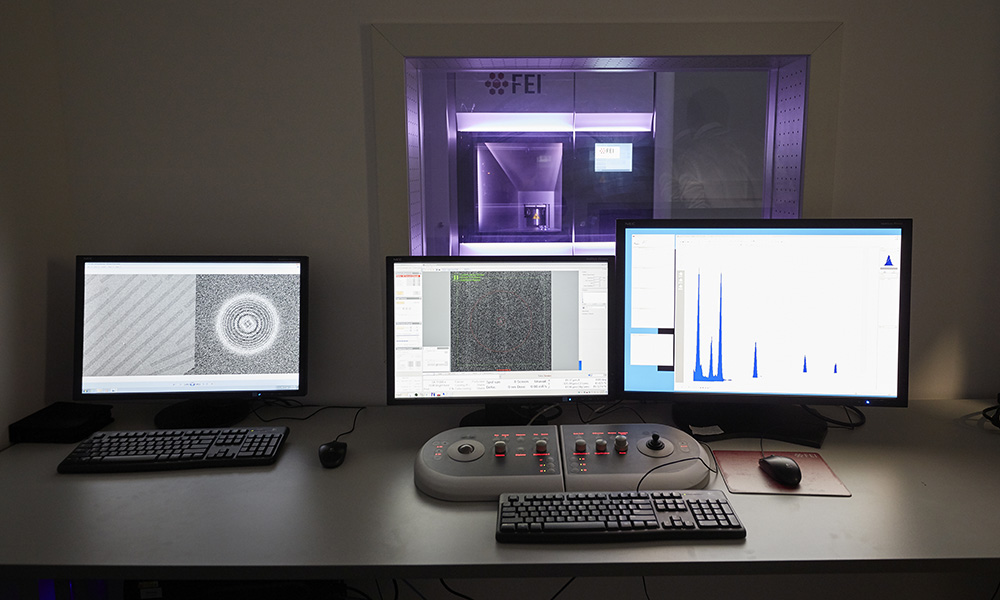EMBL Heidelberg reopens the Cryo-Electron Microscopy Service Platform to support coronavirus structural biology research.

To help the scientific community advance essential coronavirus research projects, EMBL is reopening its Cryo-Electron Microscopy (cryo-EM) Service Platform at EMBL Heidelberg. Cryo-EM is a method that enables scientists to study the structures of biological samples such as cells, viruses, or individual proteins at the molecular level. Improving our understanding of how coronavirus works at the molecular level could help scientists find new ways of treating infections.
EMBL’s Cryo-EM Service Platform has an outstanding record of producing high-quality cryo-EM structures, and gives scientists access to state-of-the-art equipment and the latest technology and methods in cryo-EM. EMBL experts will carry out data collection in close consultation with users, for both single-particle and cryo-electron tomography projects. The team operating the platform has published a call to the international research community, encouraging laboratories working on COVID-19 to submit proposals.
The Cryo-EM Service Platform is part of a wide range of structural biology services offered by EMBL on four of its sites. EMBL Grenoble and EMBL Hamburg provide support for X-ray-related experiments, in close collaboration with the European Synchrotron Radiation Facility (ESRF) in Grenoble and the German Electron Synchrotron (DESY) in Hamburg. At both sites, synchrotron beamlines are complemented by facilities for the preparation and crystallisation of biological samples. EMBL Grenoble also provides access to cryo-EM, with a Titan Krios microscope installed at the ESRF and run jointly by the four institutes on Grenoble’s EPN campus. EMBL Heidelberg provides access to the Cryo-EM Service Platform, and to advanced facilities for sample preparation and data analysis. This range of services for external users will be offered from 2021 at the EMBL Imaging Centre. EMBL’s European Bioinformatics Institute (EMBL-EBI) in Hinxton, UK, provides additional support through its data repositories (PDB, EMDB, and EMPIAR).
This article was first published on EMBL News
